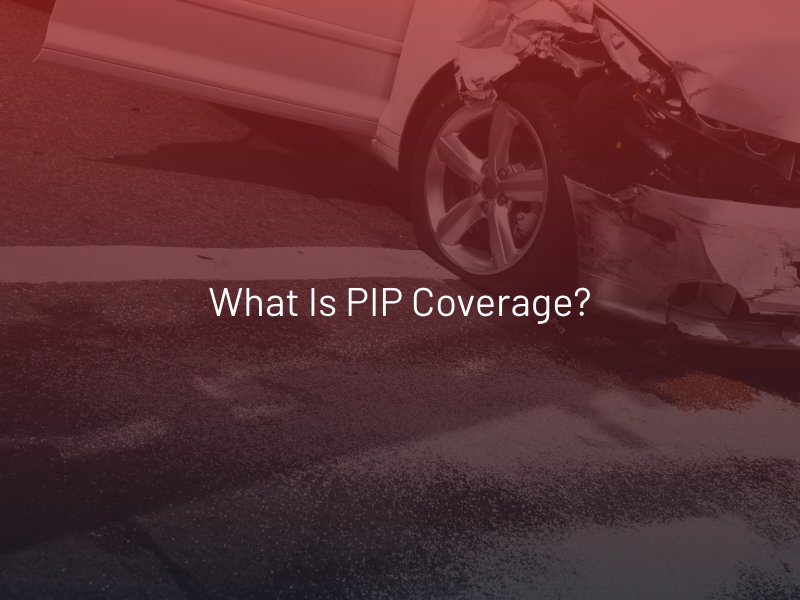What is PIP Coverage and How Does it Work?
Personal injury protection (PIP), also referred to as “no-fault insurance,” pays for medical bills and other accident-related expenses for you and your passengers after a collision. All drivers in Nevada are required to carry a minimum amount of auto insurance, but PIP coverage is optional.

What Exactly Does PIP Cover?
PIP helps pay for necessary medical expenses and other personal losses up to a certain percentage, regardless of who was at fault. For example:
- Operations
- Hospitalizations
- Ongoing professional care
- Lost wages, if you’re unable to work
- Some home care expenses, such as childcare or house cleaning, if you’re unable to fulfill these duties yourself
- Funeral expenses and wrongful death benefits
Typically, only states that operate under a no-fault system require PIP insurance because each party to an accident assumes responsibility for their own injuries. As of 2018, there are 16 no-fault states. PIP insurance differs from bodily injury liability, which is mandated by the state of Nevada. Bodily injury liability insurance pays for the medical expenses of drivers and passengers in other vehicles when you are at fault for a collision.
What Is Not Covered by PIP Insurance
- Property damage
- Pain and suffering
- The other drivers’ injuries
- Injuries in an accident while you received payment for driving
- Injuries from an accident that occurred while committing a crime, like fleeing the police
How Does PIP Coverage Work?
After an auto accident, anyone who is injured will file a claim with their own insurer under their PIP coverage. Each party’s insurance company will then pay for their policyholder’s damages up to policy limits. If bodily injury or property damage exceeds the amount of benefits an insurer will provide, you can file a lawsuit directly against the party responsible for the accident with the help of an experienced car accident attorney.
Is there a Minimum of PIP Coverage I Must Buy?
Since Nevada is a fault state, you are not required to purchase PIP coverage. Operating under a fault system means that whoever causes an accident is responsible for paying for the other party’s injuries and property damage. Nevada requires motorists to carry a minimum of:
- $25,000 in bodily injury per person
- $50,000 in bodily injury per accident
- $20,000 in property damage
This coverage does not apply to you, but it is possible to purchase more protection than the minimum. Collision and comprehensive coverage are also options to protect your vehicle, and uninsured/underinsured motorist, as well as medical payments (MedPay), will protect you in an accident.
PIP vs. MedPay
Both PIP and MedPay cover medical bills following an accident and are optional in Nevada, but PIP will also pay for other personal losses such as lost wages, rehabilitation services, or childcare. MedPay only covers necessary medical expenses. For people who live in states that require PIP coverage, MedPay may be unnecessary. However, in Nevada, PIP can be beneficial as a form of supplemental insurance. Even though they are not required, it is highly recommended to carry one or the other.